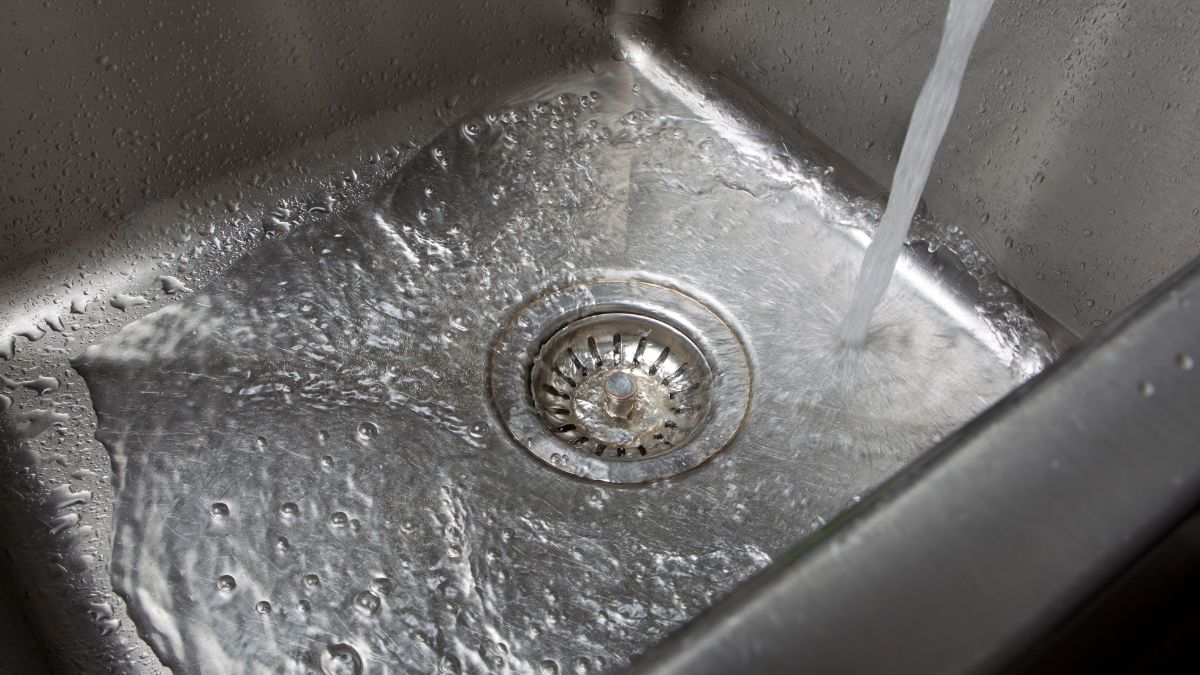
by Mold-B-Gone | Mar 6, 2024 | Mold Removal
There are few things more unsettling than the thought of mold lurking within your home’s plumbing. Pipes and drains, with their consistent moisture and hidden spaces, are prime real estate for a mold colony. This problem can affect your home’s air quality and your family’s health, which is why tackling it quickly is crucial, especially if you notice mold in drain pipes.
How Mold Takes Over
Mold needs three things to thrive: moisture, a food source like grime in those pipes, and a bit of undisturbed time. If you think about how often your drains are exposed to water and organic matter, it’s easy to see why they’re at risk. Unfortunately, the timeline for mold growth and spread can be incredibly short—visible colonies can appear within just a couple of days!
Beyond the yuck factor, mold in your plumbing can spread. Spores released into the air put your whole home’s health at risk. Worsening allergies or respiratory issues are further red flags that hidden mold might be the culprit.
Steps To Stop Mold in Its Tracks
Preventing and addressing mold in pipes requires a proactive approach. Here are three effective strategies:
Clean and Conquer
Your most potent weapon is routine drain cleaning. Flushing drains with boiling water weekly is surprisingly effective—it dislodges the grime mold loves and sends a heat blast unfriendly to spores. For suspected mold growth, baking soda and vinegar create a fizzy cleaning reaction. Skip the bleach, though, as it releases harsh fumes and can damage your pipes over time.
Battle Humidity
Moisture is mold’s best friend. After showers or baths, exhaust fans and open windows are your allies against lingering dampness. Strategic use of a dehumidifier, especially in musty basements or bathrooms, takes mold prevention to the next level.
Read more: How Do I Prevent Mold In My Basement?
Spot the Subtle Signs
Pay attention to those subtle indicators: Is a drain slow despite your best unclogging efforts? That could be a sign of hidden mold buildup. Persistent odd smells are also worth investigating. Since pipes aren’t always visible, knowing these non-obvious signs helps you catch a mold problem early.
Pros to the Rescue
Sometimes, DIY methods just aren’t enough. Stubborn mold, signs of widespread black mold in drain pipes, or worries about hidden mold in water pipes are all reasons to bring in reinforcements. A trusted mold specialist in Atlanta has the tools and experience to locate the source of the problem, remove it effectively, and help you implement defenses against future invasions.
If you notice that a black mold sink drain issue is escalating, or if concerns about your water linger, don’t wait. Contact Mold-B-Gone, Contact Mold-B-Gone, Atlanta’s premier mold removal company for mold-sensitive individuals.
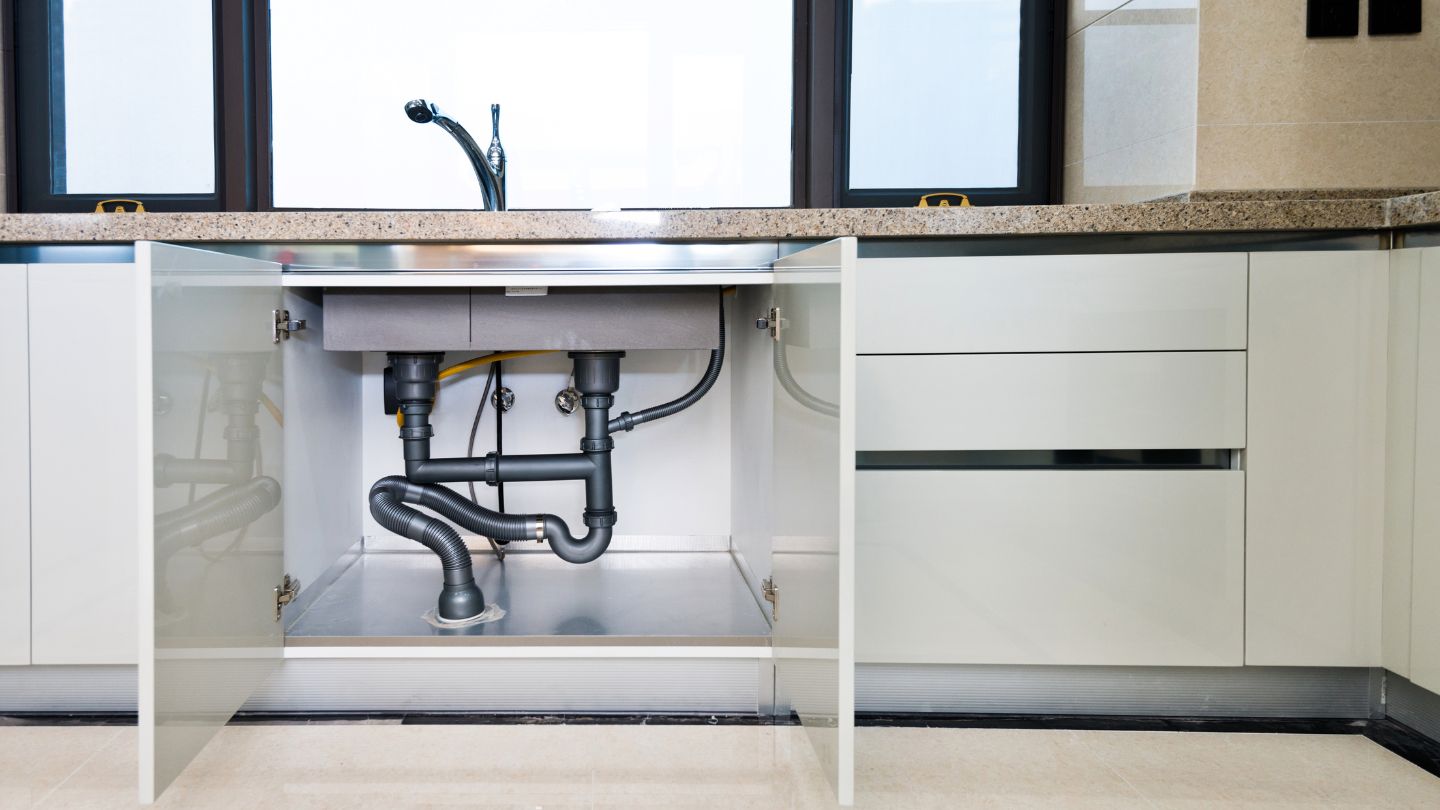
by Mold-B-Gone | Dec 6, 2023 | Mold Facts, Mold Removal
Understanding what mold mites are is crucial for anyone grappling with mold issues. These tiny, spider-like creatures are not just common in damp environments, but they thrive on mold, making them a frequent concern in homes with moisture problems.
Are Mold Mites Dangerous?
While they don’t bite or directly harm humans, their presence can significantly degrade air quality. This becomes particularly problematic for individuals with allergies or respiratory issues, as mold mites can exacerbate these conditions.
Read more: How Do I Know If I’m Allergic To Mold?
Distinguishing Mold from Other Fungi
In tackling mold mite issues, understanding the difference between mold and fungus is important. While all molds are fungi, not all fungi are molds. Mold is a specific type of fungus that creates a more hospitable environment for mold mites. Thus, distinguishing the two helps in targeted remediation efforts.
Steps to Eliminate Mold Mites
The key to getting rid of mold mites effectively is to address the root of the problem: mold. Mold mites feed on mold, so eliminating their food source is crucial. This can be done by doing the following:
- Identifying mold-infected areas: Look for spots with discoloration or a musty smell, typically in damp places like basements or under sinks.
- Cleaning the affected areas: Use mold-killing solutions such as bleach or vinegar to clean these areas thoroughly.
- Improving air circulation: Use fans or dehumidifiers to reduce moisture in the air, making it less conducive for mold and mold mites to thrive.
- Regular inspections: Keep an eye out for early signs of mold to prevent reinfestation of mold mites.
Preventive Measures
Prevention is always better than cure, especially with mold mites. Regular cleaning, reducing humidity levels, and promptly addressing any water leaks or dampness can significantly reduce the risk of mold and mold mite infestation. This includes:
- Using dehumidifiers in moisture-prone areas.
- Ensuring proper ventilation, especially in areas like kitchens and bathrooms.
- Fixing leaks and addressing condensation issues promptly.
- Keeping the house clean and free from clutter where mold can easily grow.
Get Expert Help with Mold Mite Removal
Don’t let mold mites signal a larger problem in your home. Take control of your indoor environment with Mold-B-Gone Remediation, your trusted mold removal specialist in Atlanta. Our team is dedicated to ensuring a healthy, mite-free living space for you and your family. Whether you’re dealing with a severe infestation or have specific mold sensitivities, contact us, and we will provide comprehensive solutions tailored to your needs. Remember, regular maintenance and professional expertise are your best defense against mold.

by Mold-B-Gone | Oct 23, 2023 | Mold Facts, Mold Removal
Mold is more than a mere aesthetic concern; it’s a sneaky infiltrator that brings a range of health problems, from respiratory issues, skin irritation, and allergic reactions to red, itchy eyes. Not only that, but mold also endangers the very structural foundation of buildings, making it a vital concern to address promptly and effectively to safeguard both people and properties.
Hence, timely interventions, like availing of a mold removal service in Atlanta, can be critical in managing and mitigating mold issues.
The Role of Air Purifiers in Battling Mold
It’s a common query: do air purifiers help with mold? The short answer is yes, they do, but with certain limitations. Air purifiers, especially those equipped with HEPA filters and UV-C technology, are proficient in capturing mold spores, preventing them from proliferating and spreading across your living spaces.
This means that while an air purifier helps with mold in terms of curbing airborne spores and maintaining air quality, they’re not a full-fledged solution for established mold infestations.
Read more: Indoor Air Quality: Why It Matters and How to Improve It
In the Ducts: A Different Mold Story
However, there are situations where even the most efficient air purifier struggles. If you’re thinking, “Can an air purifier help with mold in my air ducts?” it’s crucial to understand that mold in air ducts presents a unique challenge.
Once mold secures a foothold in this hidden area, fueled by accumulated moisture and debris, it can disperse spores throughout your space even as you breathe what you believe to be purified air. Therefore, while air purifiers can assist, they are not capable of rectifying mold issues within ductwork, and a professional cleaning service becomes indispensable.
The Limits of Air Purifiers in Mold Mitigation
It is pivotal to grasp that while air purifiers help with mold spores and contain the airborne spread to an extent, they don’t address the root cause or eliminate established mold colonies. Will an air purifier help with mold completely? No.
To eradicate mold, a combination of thorough cleaning, preventive practices, and strategic remediation, like managing humidity, fixing leaks promptly, and enhancing ventilation, is essential. Utilizing air purifiers should be seen as a supplementary preventive measure, not a solitary solution to a mold problem.
When the situation slips beyond what air purifiers can manage, that’s when specialists step in. Mold Removal Service in Atlanta, with a track record of securing thousands of homes in Atlanta from mold perils, steps in as your shield against mold infestations. Get in touch with us now and step into a future free from mold worries!
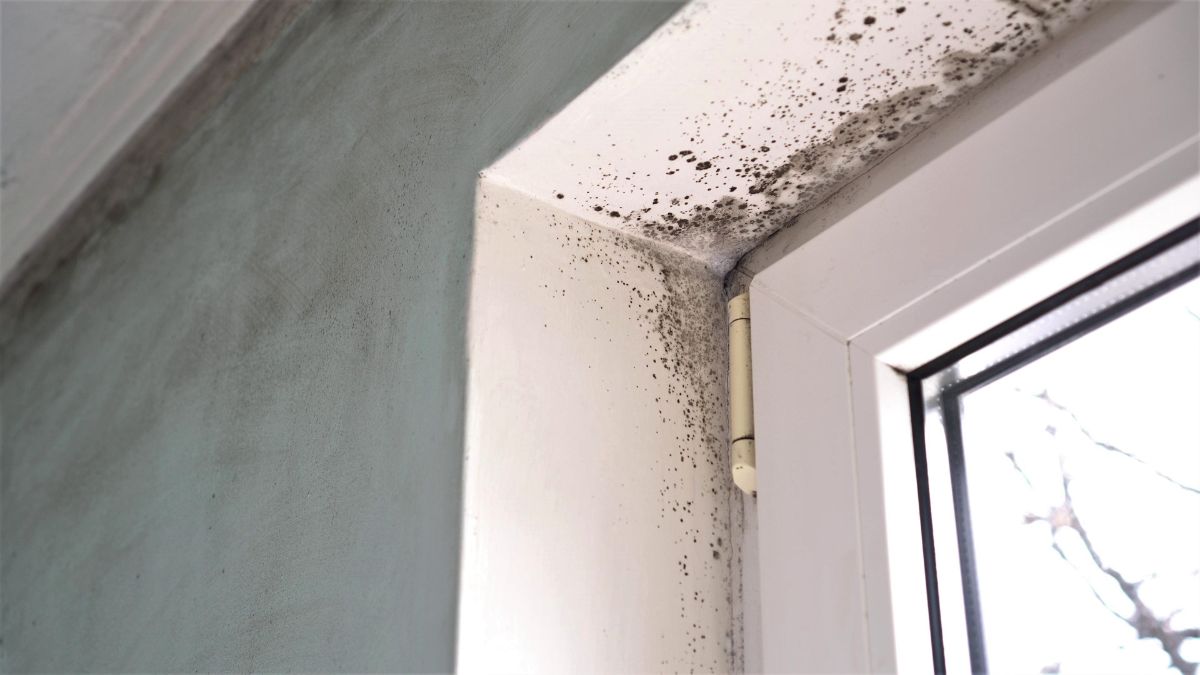
by Mold-B-Gone | Jun 22, 2023 | Killing Mold, Mold Removal
If mold gets into your home it can cause major issues that cost you time, hassle, and peace of mind. So it’s something you need to keep in check early and often. That being said, a common question homeowners have is whether or not mold can grow on metal.
After all, it typically grows on more cloth-like or porous materials. So let’s talk about whether or not mold can grow on metal in this article. We’ll also talk about how to get rid of mold if you find it.
Read More: What Is The Timeline For Mold?
The Dangers Of Mold
Before we get into “Can black mold grow on metal?” let’s talk about the downsides of having mold in your home.
Downsides of mold include:
Respiratory Illnesses
If you have asthma or someone in your family has any kind of respiratory illness, it can make those symptoms worse.
Mold gets into your lungs and can cause anything from minor symptoms to major symptoms.
General Health Effects
There are a variety of health downsides to having mold in your home. You could have sneezing, coughing, wheezing, shortness of breath, nausea, vomiting, or even headaches.
Fatigue is another side effect of having mold in your home. In other words, there are no upsides to having this fungus reside on your property.
Aesthetics
No one loves to see ugly green or black mold on any part of their home. This goes for exterior and interior surfaces. So you should call professionals to get it taken care of immediately if you notice any symptoms of mold.
Those symptoms include any kind of musty smell, black spots, green spots, peeling wallpaper, and more. Now, let’s talk about whether or not mold can grow on metal.
Can Mold Grow On Metal?
The answer to “Does black mold grow on metal?” is actually yes. Several types of mold can grow on metal. They can cause skin irritation, other health issues like we discussed above.
So just like other surfaces in your home, you need to also clean metal surfaces to avoid spore exposure and growth. Proper ventilation, professional cleaning, and specialty mold removal are all essential.
Get Mold Removal Services Today
Now you know that the answer to “Can mold grow on metal surfaces?” is yes. So it’s time to contact the experts at Mold-B-Gone Remediation. Our technicians will inspect your home and remove any traces of mold now and for the future.
You deserve to live in a home and breathe clean, fresh air that’s beautiful and fresh. So call us today for an estimate. Experience the best mold removal service in Atlanta.
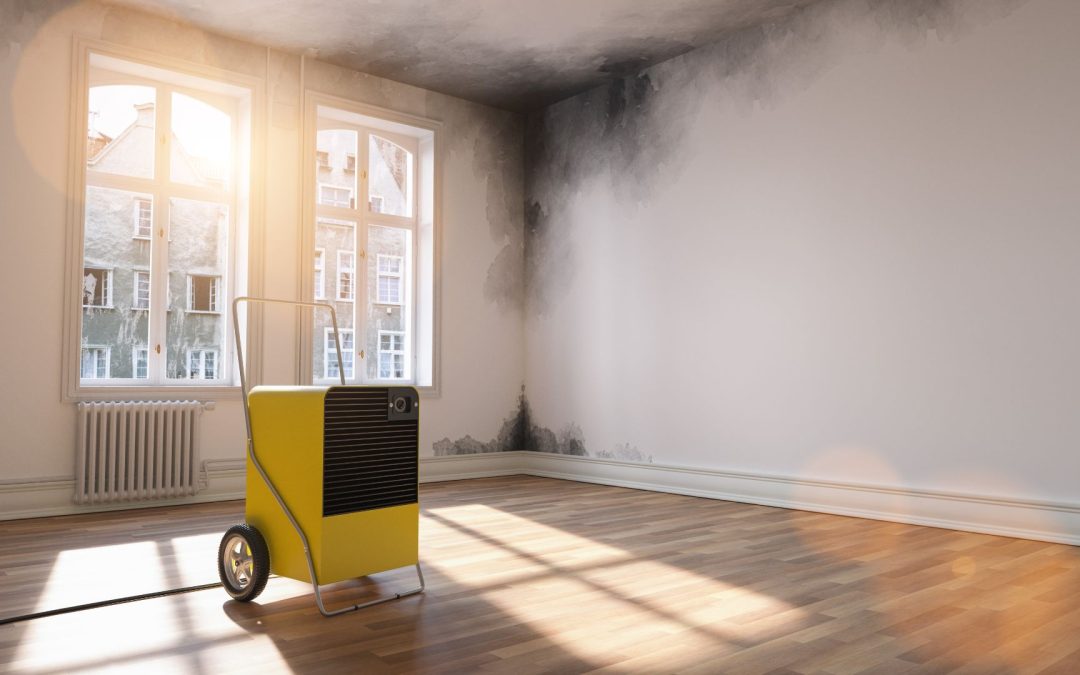
by Mold-B-Gone | May 23, 2023 | Killing Mold, Mold Removal
Mold is a common problem in several areas of the country. Yet, Atlanta’s humidity and heat mean that you may be more likely to suffer from this infestation. Let’s explore whether humidifiers are a viable solution to this pressing problem.
What Is A Dehumidifier?
A dehumidifier can help combat mold growth. Ultimately, dehumidifiers, as the name suggests, pull moisture from the air. This leads to a drier environment within the home.
So to answer the question, “Can a dehumidifier kill mold growth?” is yes and no. Indirectly, it prevents the habitat that mold loves to grow in. That being said, it won’t be enough to get rid of mold if it’s already taken hold. So you should always have professionals come out for mold removal in Atlanta.
How Does Mold Grow?
Aside from understanding “Will a dehumidifier kill mold”, and mites and fleas for that matter, let’s talk about the mechanism that allows mold to grow.
Mold loves moist, dark, damp environments. That’s why sinks, faucets, and other places in your home where there is water make an excellent mold habitat. Additionally, mold grows on paper, fabrics, cardboard, drywall, and paint.
And once it gets hold in your home, it can range from annoying to downright deadly.
How To Get Rid Of Mold
While you could try to install a dehumidifier and use some homemade methods, it’s best to have mold remediation done. Professional mold removal services kill the mold at its source so that it stops spreading.
After all, it’s very contagious, and once spores take hold, they tend to spread to other areas of your house — causing damage and health hazards.
Choosing A Mold Removal Company
When looking for the right removal services, ask them if they have insurance in place. Proper mold removal companies have insurance to guarantee their work for your protection.
Additionally, they should come out for inspection to properly assess the right method to use. And finally, look for a good online rating from other satisfied customers. This lets you know that you’re dealing with high integrity professionals with proven results.
Will Running A Dehumidifier Kill Mold? Summary
Contact Mold-B-Gone and get a free inspection. We’ll assess your property to see where mold is currently and potentially might be growing in the future. Then, we use state-of-the-art techniques and tools to remove the mold once and for all.
You deserve a clean, safe home. So reach out today and protect your property with expert guidance. After all, your house should be your refuge. And you shouldn’t have to ask questions like “Will a dehumidifier kill mold spores” ever again.
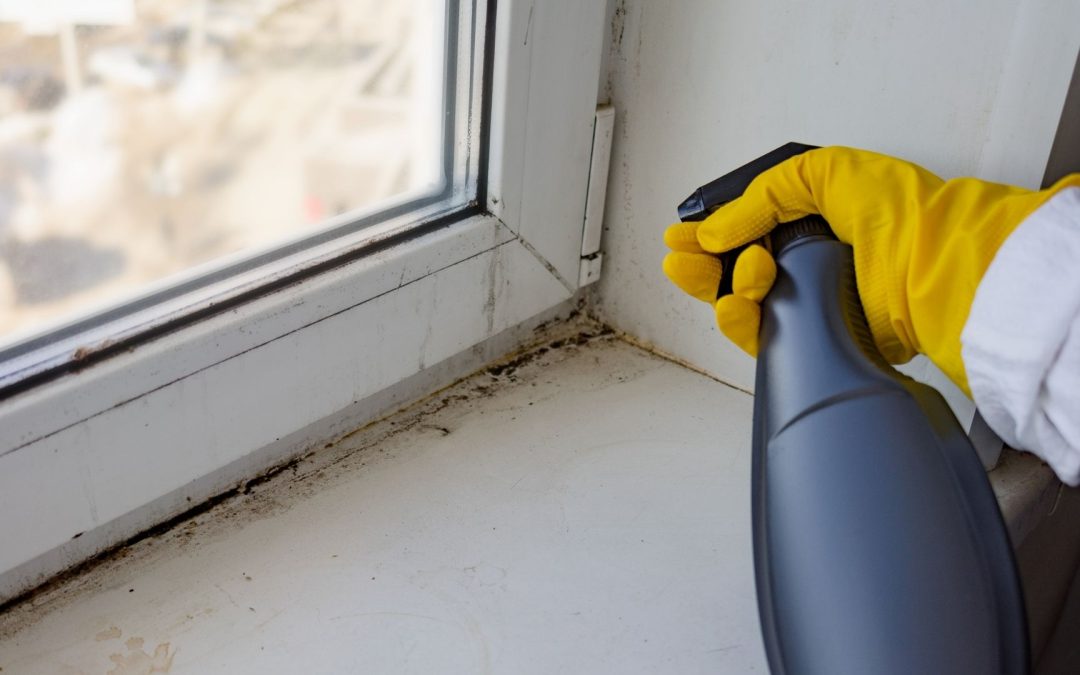
by Mold-B-Gone | May 2, 2022 | Mold Removal
Mold is a type of fungus that can grow almost anywhere there is moisture and organic material. It can cause health problems in people who are allergic to it, and it can also damage property. If you have mold growing in your home, you may be wondering if bleach is an effective way to treat it. In this blog post, we will explore the effectiveness of bleach at treating mold and provide some tips for preventing mold growth.
Does Bleach Kill Mold?
The answer to this question is both yes and no. Bleach can kill mold on hard surfaces, such as tile and glass. However, bleach does not kill mold spores on porous surfaces, such as wood and drywall. The reason for this is that bleach only kills the mold spores on the surface of the material. It does not penetrate into porous materials to kill the roots of the mold. As a result, mold can quickly regrow on treated surfaces if they are not properly cleaned and dried afterward.
So, while bleach can be effective at killing mold on some surfaces, it is not a complete solution for mold removal. If you have mold growing in your home, you should contact a professional Mold Remediation company to have it removed.
Preventing Mold Growth
The best way to deal with mold is to prevent it from growing in the first place. There are a few things you can do to reduce the risk of mold growth in your home:
- Keep indoor humidity levels low, ideally between 30 and 50 percent. Use a dehumidifier or air conditioner if necessary.
- Fix any leaks in your plumbing or roof as soon as possible.
- Ventilate damp areas such as kitchens, bathrooms, and laundry rooms. Use an exhaust fan or open a window when cooking, showering, or doing laundry.
- Use mold-resistant products when remodeling or building new construction. Materials such as drywall, paint, and carpet that are labeled “mold-resistant” can help to prevent mold growth.
Need basement-specific ideas? Read 10 Tips to Prevent Basement Mold.
Following these tips, you can help to prevent mold from growing in your home. However, if you already have mold growing in your home, it is best to contact a professional Mold Remediation company to have it removed. Bleach can be effective at treating mold on some surfaces, but it is not a complete solution for mold removal. Taking steps to prevent mold growth is the best way to keep your home healthy and free of this damaging fungus.
Contact us today if you need mold cleaning service in Atlanta. We are here to help! Visit our website or give us a call.






